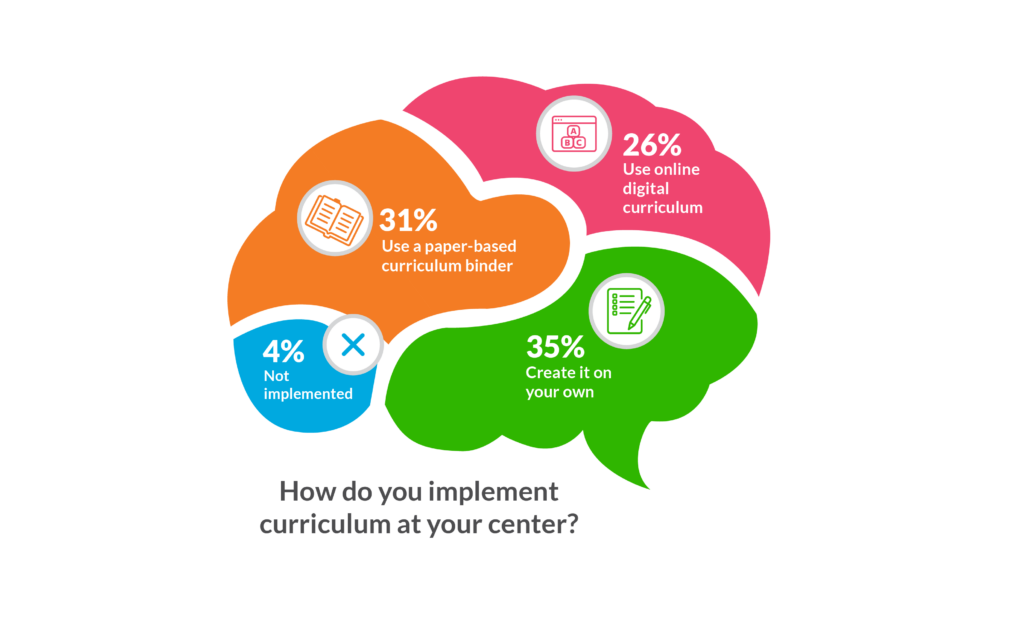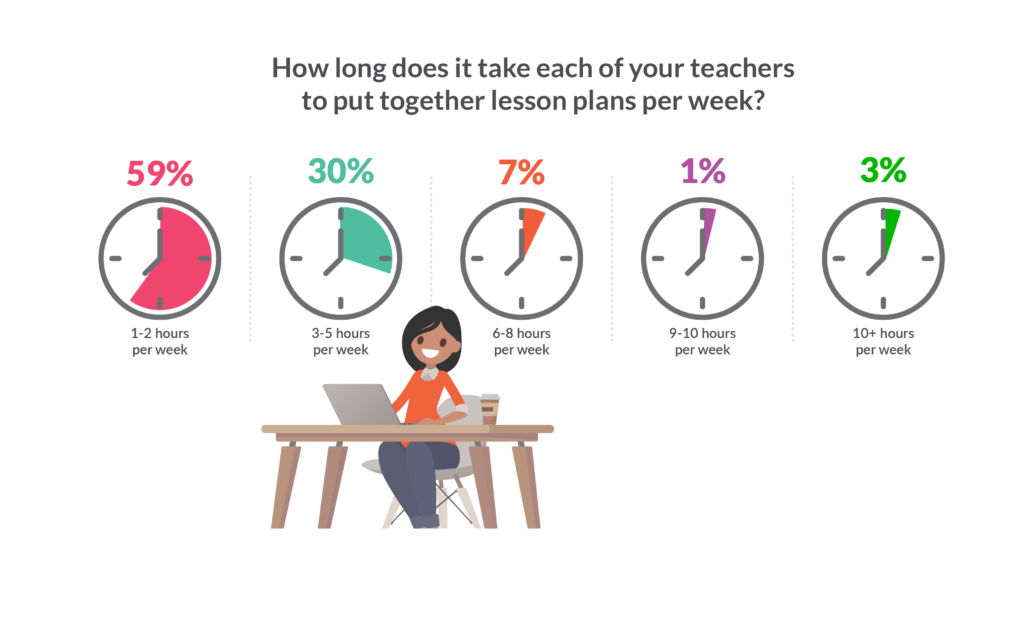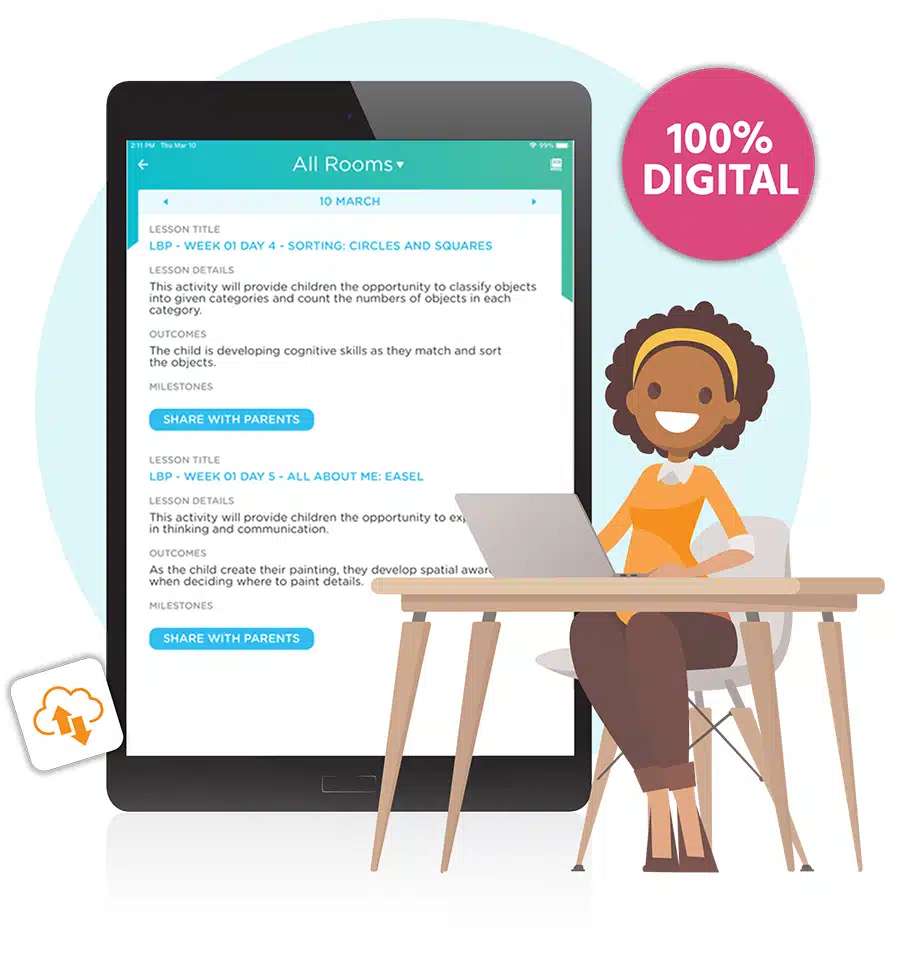
The 2024 Child Care Management Software Industry Trends Report from Procare Solutions found that about 30% of survey respondents said each teacher spends between three and five hours a week doing lesson planning and a similar percentage noted their centers create their own curriculum.
This leads to stress among teachers and other staff, who already are dealing with more children with challenging behaviors.
Let’s take a deeper look at the report’s findings, and what you can do to enhance the learning of children in your care while supporting your teachers as you struggle with staffing shortages!
Create a Child Care Environment That Is Free of Stress
Prerna Richards, founder of Together We Grow and an ECE consultant, said the children are absorbing the stress of the grownups around them.
“Children are emotional detectives, constantly scanning their environment,” she said.
She encourages center leaders to put more emphasis on mental wellbeing and social skills, and to give teachers the tools they need while creating a safe and loving school family.
“Our silence is our permission,” she said. “When we refrain from holding staff accountable for behaviors that are not in the best interests of children, and we fear that addressing these issues may lead to a teacher quitting, we operate from a perspective of fear. This fear-based approach adversely impacts teachers who are genuinely striving to perform their best and uphold ethical standards.”
It is vital to remove as much stress as possible from the classroom. Using an all-digital curriculum saves teachers time and energy!
Why Curriculum Matters in Early Learning
Mountains of research confirm what a high-quality child care can do for a child later in life, and a solid curriculum is directly linked to this success.
The U.S. National Institute of Health found that children up to 4 years old who attend a high-quality daycare achieve higher academic scores as teenagers.
Children who go to preschool are generally able to adjust to the rigors of kindergarten better than kids who stay home with their parents. This is because they’ve already been exposed to teacher expectations and school-like routines.
And early childhood education has also been proven to reduce the chance of special education placement and increase the likelihood of high school graduation.
Digging Into the Data
Procare Solutions conducted a survey of more than 100,000 stakeholders in child care on child care management software and other technology usage to illustrate benchmarks and how automation can put time back into child care providers days.
These questions included what curriculum centers are using, or not using. The responses were fascinating:

Notice that 31% of respondents rely on paper-based curriculum, which becomes outdated quickly and often is cumbersome to understand — especially for teachers with little experience. That number is similar for those creating their own curriculum.
At a time when cost savings rank as the biggest concern to child care programs, all-digital curriculum programs that include automatic updates (versus re-ordering sets of books and binders) typically are more affordable and easier to navigate.
The report also honed in on how much time teachers are spending on planning lessons:

Assessments also are a key part of ECE. A significant 74% of educators who responded to the Procare Solutions survey shared that they conduct regular natural observations of the children in their care, ensuring personalized attention and development tracking.
Beyond observation, more than half of these respondents (56%) take an evidence-based approach by gathering data and children’s work for robust portfolios. About 54% also incorporate structured assessment tools and questionnaires, further illustrating the sector’s dedication to harnessing insights for optimal educational outcomes.
How Procare Early Learning Can Help

A strong digital curriculum that’s easy to use supports your teachers and can ease some of the stress they encounter each day.
Procare Early Learning is an all-digital curriculum specifically designed to meet the unique needs of educating children from infancy through pre-kindergarten.
It embeds Learning Beyond Paper’s early childhood curriculum, which was designed by educators with decades of combined experience, into Procare, making it easier and less time-consuming for busy teachers and administrators to provide high-quality education.
And it’s saving one child care center in West Virginia up to $1,600 a month!
With Procare Early Learning powered by Learning Beyond Paper, child care centers can:
- Equip teachers with state-of-the-art online curriculum at their fingertips
- Dramatically reduce the amount of time spent on lesson planning each week
- Offer children a high-quality, developmentally appropriate curriculum
- Save money with this cost-efficient solution that’s integrated with Procare
This curriculum can be used in ALL child care center classrooms, with 52 weeks of lesson plans and more than 4,000 daily activities for infants, toddlers, preschoolers and pre-kindergarteners. Learning areas include STEAM, language and literacy, physical development, cognitive, music and movement as well as interactive reading. Plus, teachers get tips and tools they can use in real time.
Procare is the only solution that can deliver the entire early childhood education ecosystem — lesson planning, lesson delivery within the classroom as well as assessment and parent engagement. Being able to do all of these with one platform simplifies classroom management and planning!
How much time and money could your child care center save using a digital curriculum designed for young learners? Enter your number of staff, number of students and type of program into our online calculator to see your potential time and money savings!



